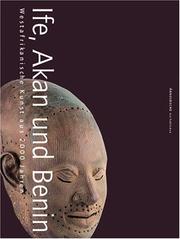| Listing 1 - 10 of 46 | << page >> |
Sort by
|
Book
Year: 1971 Publisher: Amsterdam : [Postbus 5351,] Nederlandse Stichting Openbaar Kunstbezit,
Abstract | Keywords | Export | Availability | Bookmark
 Loading...
Loading...Choose an application
- Reference Manager
- EndNote
- RefWorks (Direct export to RefWorks)

ISBN: 3897901501 Year: 2000 Publisher: Stuttgart : Arnoldsche,
Abstract | Keywords | Export | Availability | Bookmark
 Loading...
Loading...Choose an application
- Reference Manager
- EndNote
- RefWorks (Direct export to RefWorks)
Book
Year: 1971 Publisher: Amsterdam, : Nederlandse Stichting Openbaar Kunstbezit,
Abstract | Keywords | Export | Availability | Bookmark
 Loading...
Loading...Choose an application
- Reference Manager
- EndNote
- RefWorks (Direct export to RefWorks)
Book
ISBN: 3530034207 Year: 1980 Publisher: Olten Walter
Abstract | Keywords | Export | Availability | Bookmark
 Loading...
Loading...Choose an application
- Reference Manager
- EndNote
- RefWorks (Direct export to RefWorks)
Art, West African. --- Art, West African --- West African art
Book
ISBN: 0289702895 Year: 1972 Publisher: Studio Vista
Abstract | Keywords | Export | Availability | Bookmark
 Loading...
Loading...Choose an application
- Reference Manager
- EndNote
- RefWorks (Direct export to RefWorks)
Art, West African. --- Art, West African --- West African art
Book
ISBN: 0841901473 Year: 1975 Publisher: New York Africana Publishing
Abstract | Keywords | Export | Availability | Bookmark
 Loading...
Loading...Choose an application
- Reference Manager
- EndNote
- RefWorks (Direct export to RefWorks)
Art, West African. --- Art, West African --- West African art

ISBN: 094294903X Year: 1990 Publisher: New York (N.Y.) : Studio museum in Harlem,
Abstract | Keywords | Export | Availability | Bookmark
 Loading...
Loading...Choose an application
- Reference Manager
- EndNote
- RefWorks (Direct export to RefWorks)
Book
ISBN: 1501337955 1501337947 1501337939 Year: 2019 Publisher: London New York Bloomsbury Visual Arts
Abstract | Keywords | Export | Availability | Bookmark
 Loading...
Loading...Choose an application
- Reference Manager
- EndNote
- RefWorks (Direct export to RefWorks)
"The early collections from Africa in Liverpool's World Museum reflect the city's longstanding shipping and commercial links with Africa's Atlantic coast. A principal component of these collections is an assemblage of several thousand artefacts from western Africa that were transported to institutions in northwest England between 1894 and 1916 by the Liverpool steam ship engineer Arnold Ridyard. While Ridyard's collecting efforts can be seen to have been shaped by the steamers' dynamic capacity to connect widely separated people and places, his Methodist credentials were fundamental in determining the profile of his African networks, because they meant that he was not part of official colonial authority in West Africa. Kingdon's study uncovers the identities of many of Ridyard's numerous West African collaborators and discusses their interests and predicaments under the colonial dispensation. Against this background account, their agendas are examined with reference to surviving narratives that accompanied their donations and within the context of broader processes of trans-imperial exchange, through which they forged new identities and statuses for themselves and attempted to counter expressions of British cultural imperialism in the region. The study concludes with a discussion of the competing meanings assigned to the Ridyard assemblage by the Liverpool Museum and examines the ways in which its re-contextualization in museum contexts helped to efface signs of the energies and narratives behind its creation."--Bloomsbury Publishing The early collections from Africa in Liverpool's World Museum reflect the city's longstanding shipping and commercial links with Africa's Atlantic coast. A principal component of these collections is an assemblage of several thousand artefacts from western Africa that were transported to institutions in northwest England between 1894 and 1916 by the Liverpool steam ship engineer Arnold Ridyard. While Ridyard's collecting efforts can be seen to have been shaped by the steamers' dynamic capacity to connect widely separated people and places, his Methodist credentials were fundamental in determining the profile of his African networks, because they meant that he was not part of official colonial authority in West Africa. Kingdon's study uncovers the identities of many of Ridyard's numerous West African collaborators and discusses their interests and predicaments under the colonial dispensation. Against this background account, their agendas are examined with reference to surviving narratives that accompanied their donations and within the context of broader processes of trans-imperial exchange, through which they forged new identities and statuses for themselves and attempted to counter expressions of British cultural imperialism in the region. The study concludes with a discussion of the competing meanings assigned to the Ridyard assemblage by the Liverpool Museum and examines the ways in which its re-contextualization in museum contexts helped to efface signs of the energies and narratives behind its creation
Book
ISBN: 0385060254 038507462X Year: 1973 Publisher: Garden City, N.Y. : Doubleday
Abstract | Keywords | Export | Availability | Bookmark
 Loading...
Loading...Choose an application
- Reference Manager
- EndNote
- RefWorks (Direct export to RefWorks)
Art, Primitive --- Art, West African --- Art primitif --- Art ouest-africain --- Art, West African. --- Art
Book
ISBN: 0874746116 Year: 1987 Publisher: Washington The National Museum of African Art
Abstract | Keywords | Export | Availability | Bookmark
 Loading...
Loading...Choose an application
- Reference Manager
- EndNote
- RefWorks (Direct export to RefWorks)
Art, West African --- Themes, motives. --- West African art --- Themes, motives
| Listing 1 - 10 of 46 | << page >> |
Sort by
|

 Search
Search Feedback
Feedback About UniCat
About UniCat  Help
Help News
News